MURFREESBORO, Tenn. — In the wake of the tragic student death inside James E. Walker Library, organizers for Middle Tennessee State University’s first conference in recognition of National Disability Employment Awareness Month, or NDEAM, decided to move forward with the event, with speakers emphasizing the critical importance of discussing mental health and disabilities.
Held Tuesday, Oct. 29, at the MT Center inside the Sam H. Ingram Building, the livestreamed event took place a day after 21-year-old student Serenity Birdsong died by suicide in the library. The conference featured six guest speakers who shared their professional and personal journey coping with mental and/or physical disabilities, aiming to shape the audience’s perspectives on success, leadership and ability in the workplace.
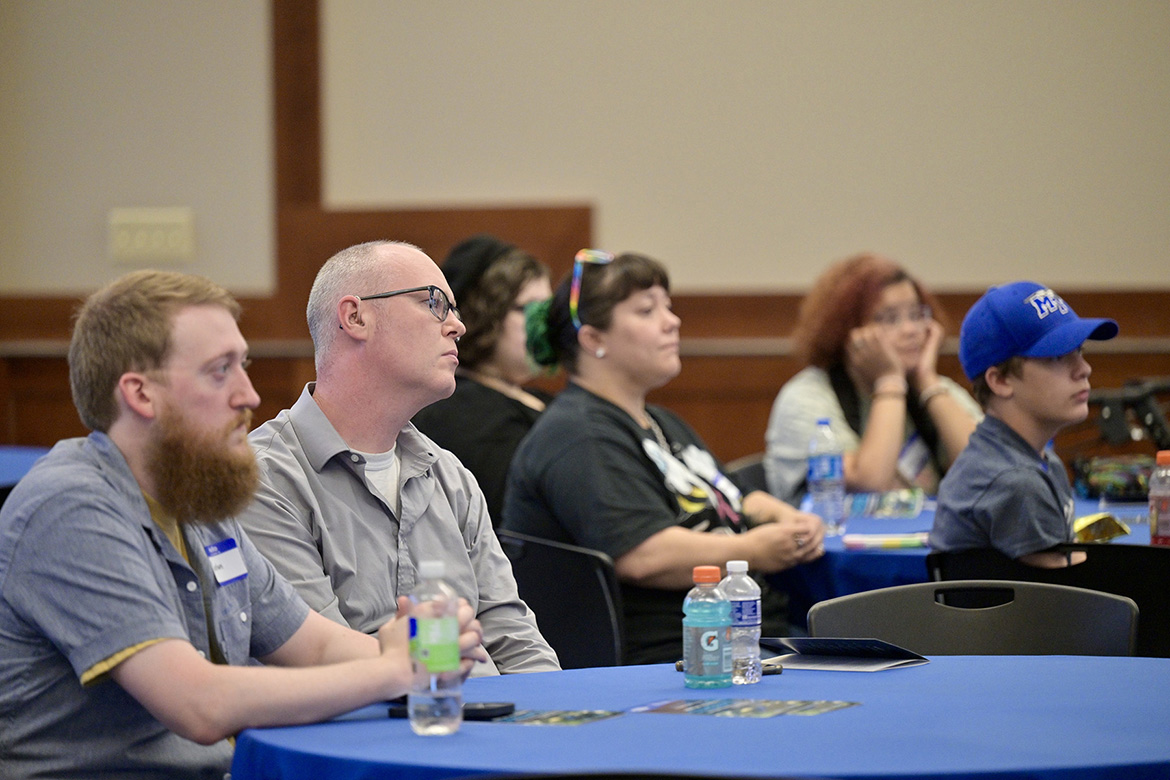
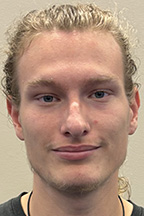
MTSU student Jaden Keith, 21, originally planned to attend the event with his communications class, but when classes were canceled that day due to Birdsong’s death, he decided that he’d “attend this because it seemed worth doing based on what happened yesterday.”
The junior music major with a concentration in theory-composition from Cape Girardeau, Missouri, said it’s important to celebrate NDEAM because “it affects us in more ways than we know, and it’s definitely informative to know how it affects everyone involved.”
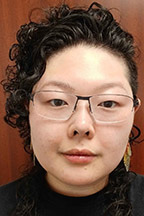
The conference was the brainchild of MTSU junior media management student Kia Dowen, chapter president of the Gold Key International and Omicron Delta Kappa honor societies, two of the event sponsors. The 30-year-old Virginia native is also a transfer Buchanan fellow and first-generation college student.
“All of our speakers are geared toward speaking specifically on their experiences with disabilities and their leadership … We will also use this as a way to help the campus grieve,” Dowen said during opening remarks. “It’ll be part of our processing of this event, and so our speakers will put a somewhat heavier focus on the mental health aspect.”
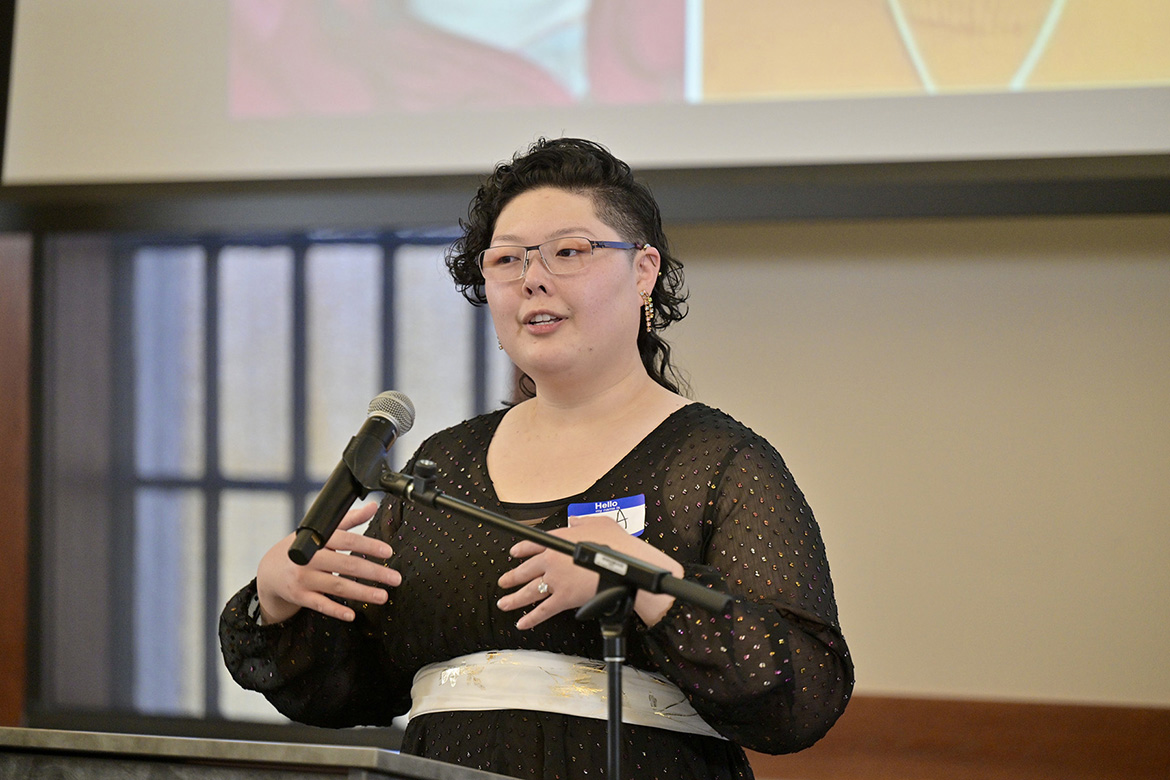
‘Know you’re not alone. You’re not broken’

Meaghan Thomas, event master of ceremony and WBRC-TV News 6’s first alert meteorologist, briefly spoke about her nonprofit The Heart of Hearing, which raises funding for those who cannot afford hearing aids.
Thomas was inspired to create this nonprofit after unexpectedly receiving free hearing aids from her audiologists that would’ve put her in credit card debt otherwise. Her organization meets the needs of 18- to 45-year-olds, regardless of income, who need hearing aids but don’t have thousands of dollars to spend on them.
“The Heart of Hearing is to take that financial burden off the young professional, so that they can finish school, get their degree, go into the workforce and not have to worry about some sort of financial burden holding them back,” Thomas said.
All recipients of the nonprofit work with an audiologist to find the brand and model that will work best for them. Dowen herself was a past recipient.
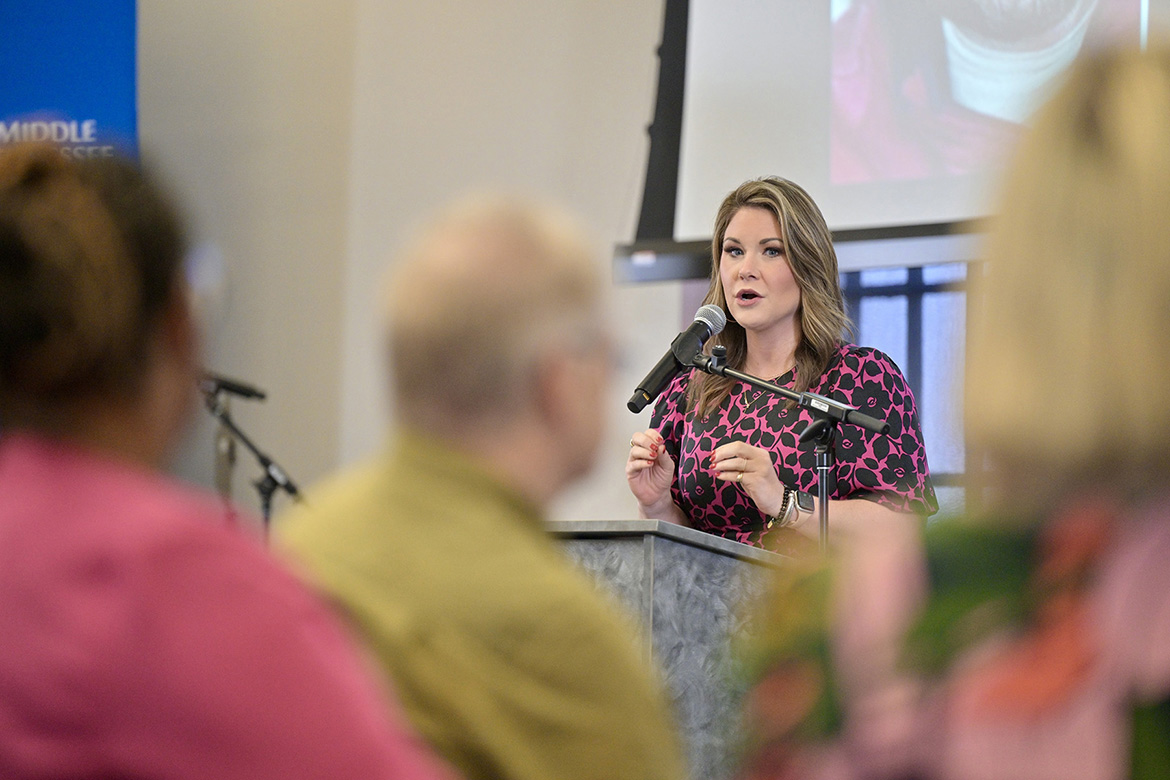

Speaker Gerald Christian, associate director of the MTSU Disability and Access Center, shared his story of becoming paralyzed after a car wreck as a teenager and how he overcame the difficulties that his disability brought.
Christian found in his research that having a disability brings biological, psychological and sociological challenges, but that for many people he interviewed, the sociological aspect was the hardest.
“Being branded, being marginalized and set aside by society, and they say, ‘you’re different, you’re less than’ — it has very harmful effects on people,” Christian told the audience. “… And though we may look different, talk different, think different, speak different — whatever it may be — we have far more similarities.”
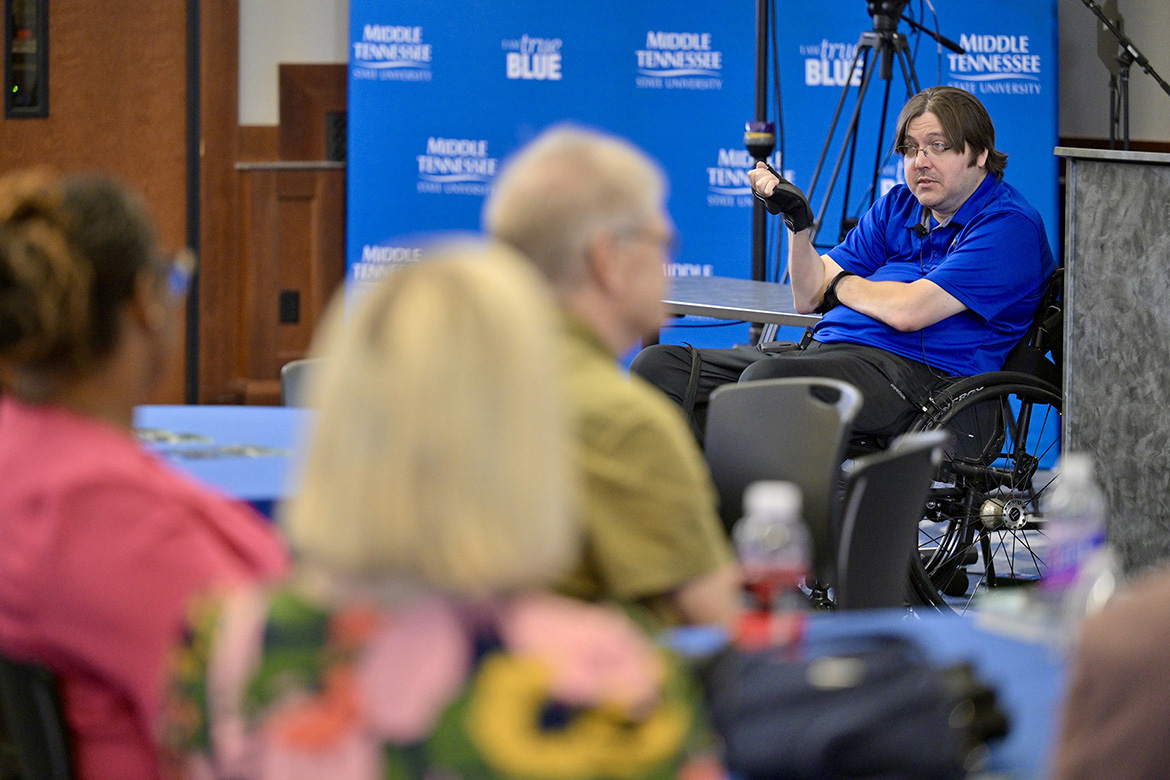
For students who need mental health support, he said, “Please talk to somebody, whether it’s our center, counseling services, a hotline, a family member or a friend. Always reach out and talk. Ask for help.”
“Know you’re not alone. You’re not broken. You’re not weird,” Christian continued. “There’s nothing wrong with you. If you are depressed or have suicidal thoughts, you just need some support and some resources.”
‘Nobody else is going to live for me’
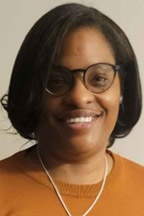
Speaker Shari Hinton, a Nashville native who works for the Office of Protection Services for the Smithsonian Institution in Washington, shared how she overcame a number of personal challenges, including bipolar disorder, and now champions vulnerable populations in her community.
Hinton encouraged the audience and online listeners to advocate for their own health and to take control of their reality.
“Let me taste life … there’s not a day that goes by that that’s not the first thing that comes through my mind because I know I have to get up. I have to live. Nobody else is going to live for me,” Hinton said.
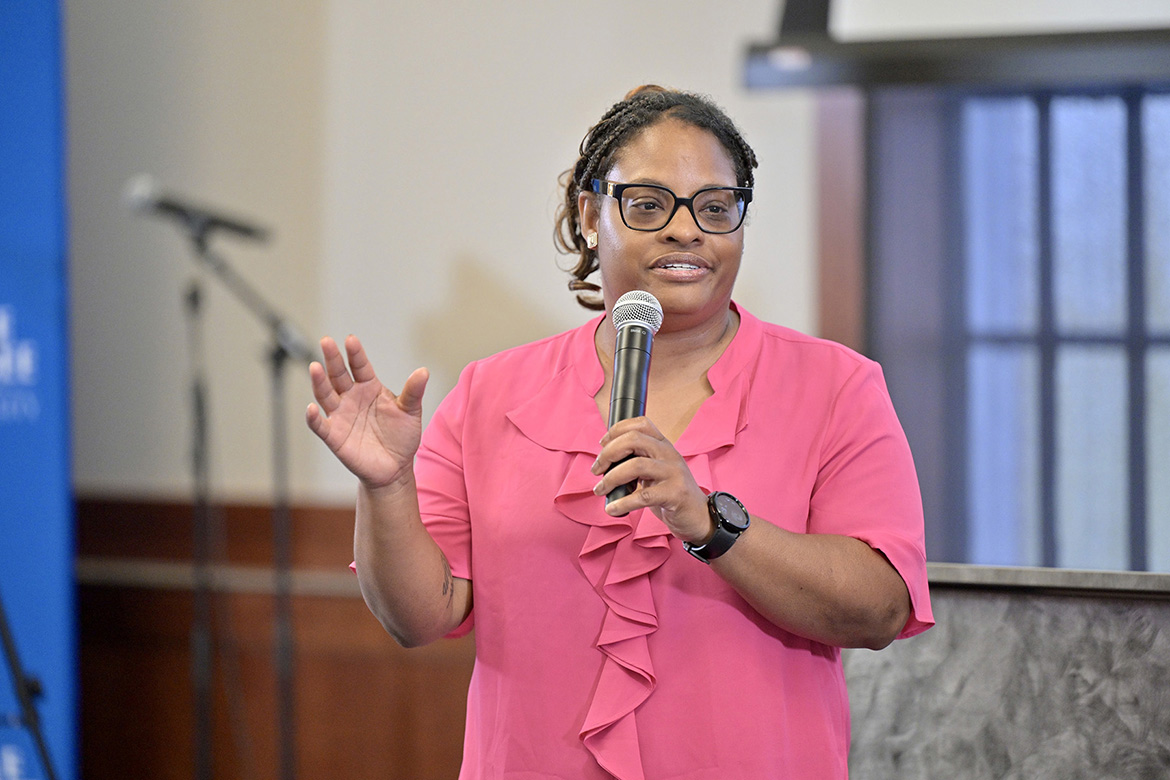
After struggling with homelessness, she was chosen for a Habitat for Humanity house. Her former workplace, Publix, surprised her by helping sponsor her home.
Hinton emphasized the importance of invisible disabilities such as bipolar disorder, by saying, “just because we don’t look the part doesn’t mean there’s not something going on. I want everybody to love and hug somebody else because that’s our job is to take care of each other.”
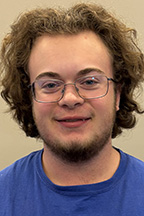
MTSU student Hunter Warren, 20, of Murfreesboro, came to the conference with Amy Harris-Aber, full-time lecturer in the Department of English. One of his biggest takeaways was bringing “awareness to different types of disabilities and, like they said, invisible disabilities.”
“I liked what she (Shari Hinton) said about getting up again and again,” said the junior recording industry major with a concentration in commercial songwriting. “You keep going no matter what.”
Fellow student Keith shared a similar takeaway, saying, “Even though it may not look like someone has a disability, it definitely affects more people than you know and, in more ways, than you probably know.”
‘I can’t change others, but I can change myself’
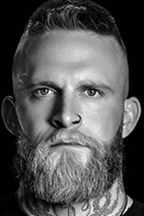
After struggling with drug addiction, speaker Joe Adams said he began transforming his life. Along the way, he began struggling with a new addiction — the addiction to success, he explained.
The military veteran, MTSU psychology graduate student and founder of the Relentless Pursuit company emphasized the importance of redefining success.
“I looked around in my life, and I said, ‘Man, I have a beautiful little family,’” said Adams, whose company empowers others to share their personal stories. “That’s the peak of success. That was my biggest dream growing up.
“I get to go to work every day and do what I love with pure authenticity. That’s success.”
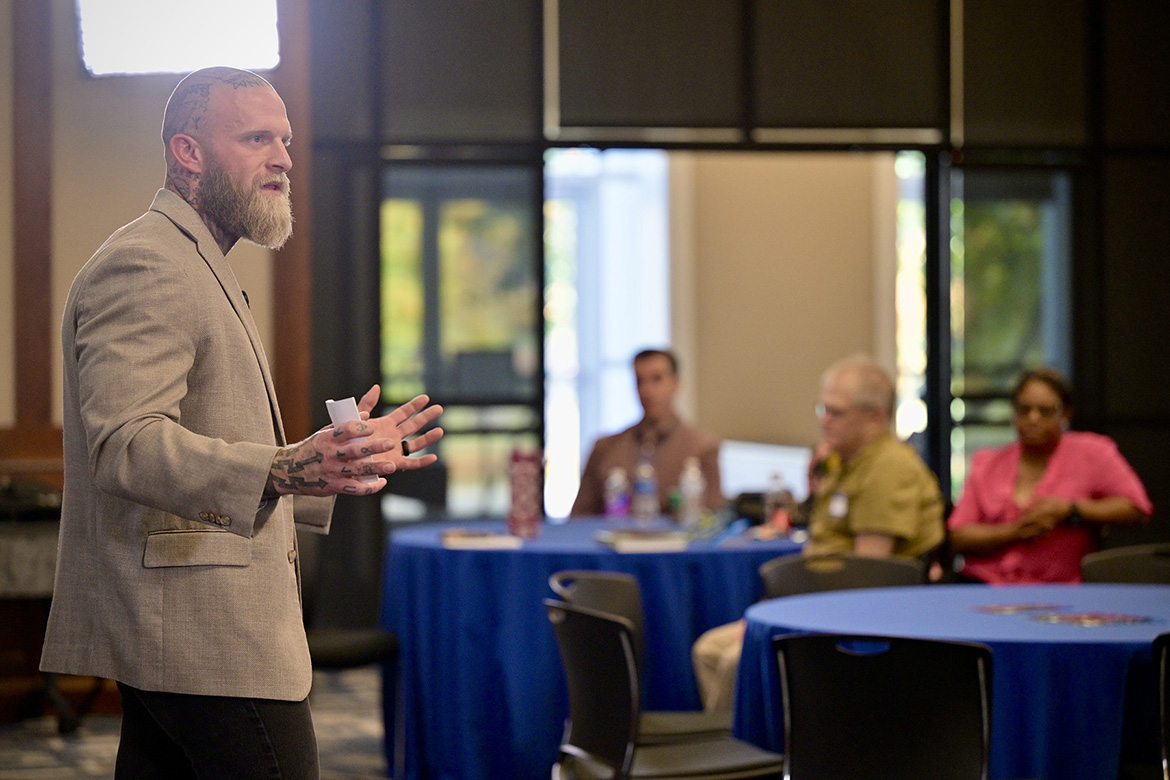
Adams encouraged the audience to live by the acronym GRIT, meaning using gratitude, resilience, intention and transformation to guide their lives.
“Harnessing that self-belief and that willpower and knowing that it’s going to work, no matter what, and all along the way you’re going to learn lessons, is what’s most powerful,” Adams said.
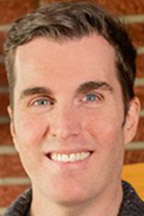
Following Adams was JP Williams, a hit songwriter, performer, executive coach and motivational speaker who lost his vision at age 10. Now certified by the International Coaching Federation and recipient of specialty training in mental health modalities, Williams is a life coach and founder of the publishing company, Blonde Leading Blind Music.
“I can’t change others, but I can change myself, so I’ve been on this lifelong journey of self-leadership,” Williams said. “I had to step up as CEO of me to grow and improve as a human being with unique challenges and talents, just like everyone else, to keep myself on pace and on track.”
Williams encouraged the audience to live by his three A’s of self-leadership: acceptance, agency and alternatives. He later added, he’d like to add a fourth A, “all-good,” saying, “Success or failure, win or lose, straight ahead or detour — it’s all good, as long as I’m accepting, exercising my agency and creating alternatives — and lastly, giving it my best shot.”
Williams concluded his talk by performing one of his hit songs, “Best Shot,” a country song he co-wrote that was No. 1 for three weeks in 2018.
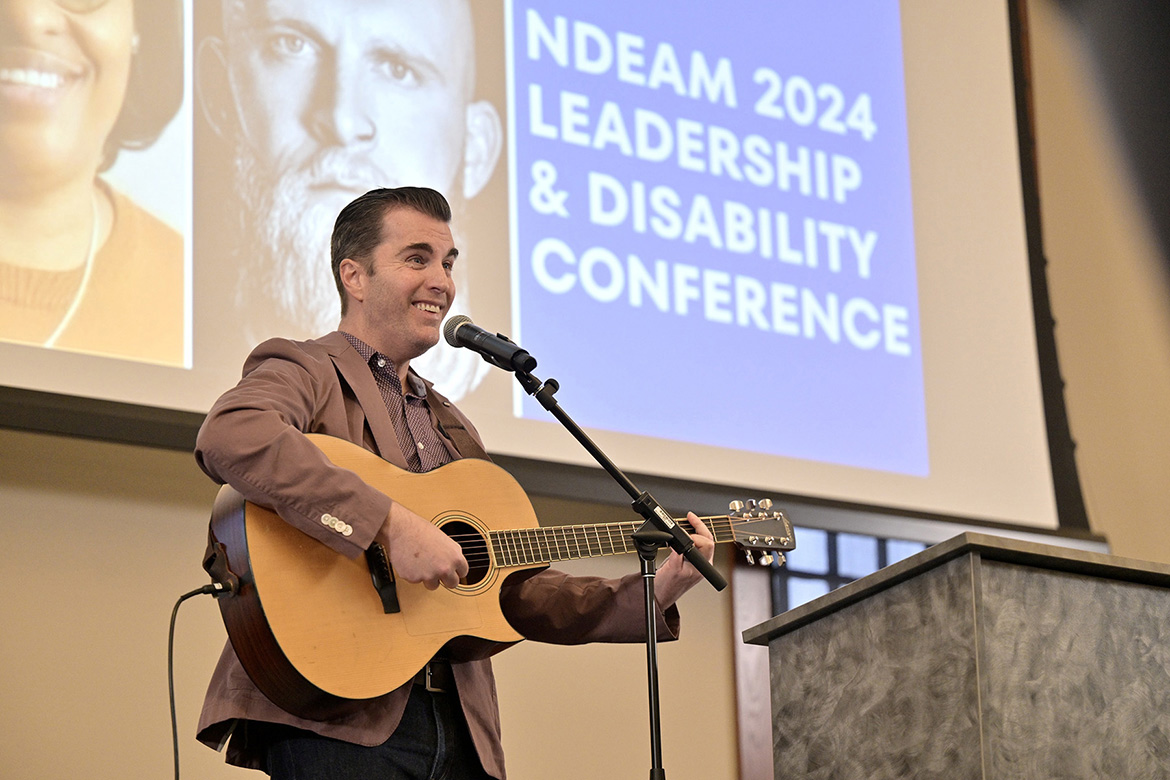
‘Remember that it’s OK to not be OK’
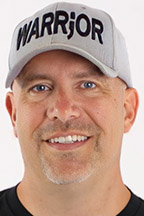
Wrapping up the conference was Eric Zink, one of the largest mental health and addiction advocate educators on social media. After losing both his wife and father to suicide, Zink attempted to take his own life.
Regarding suicide, he said, “You don’t have to ever hit that point … listening to yourself, listening to that inner dialogue and realizing that it’s OK to ask for help because the majority of us would never be where we are ifwe never asked for help.”
“For the one that is out there struggling, you have to remember that you matter. You have to remember to reach out, and you have to remember that it’s OK to not be OK,” Zink later noted.
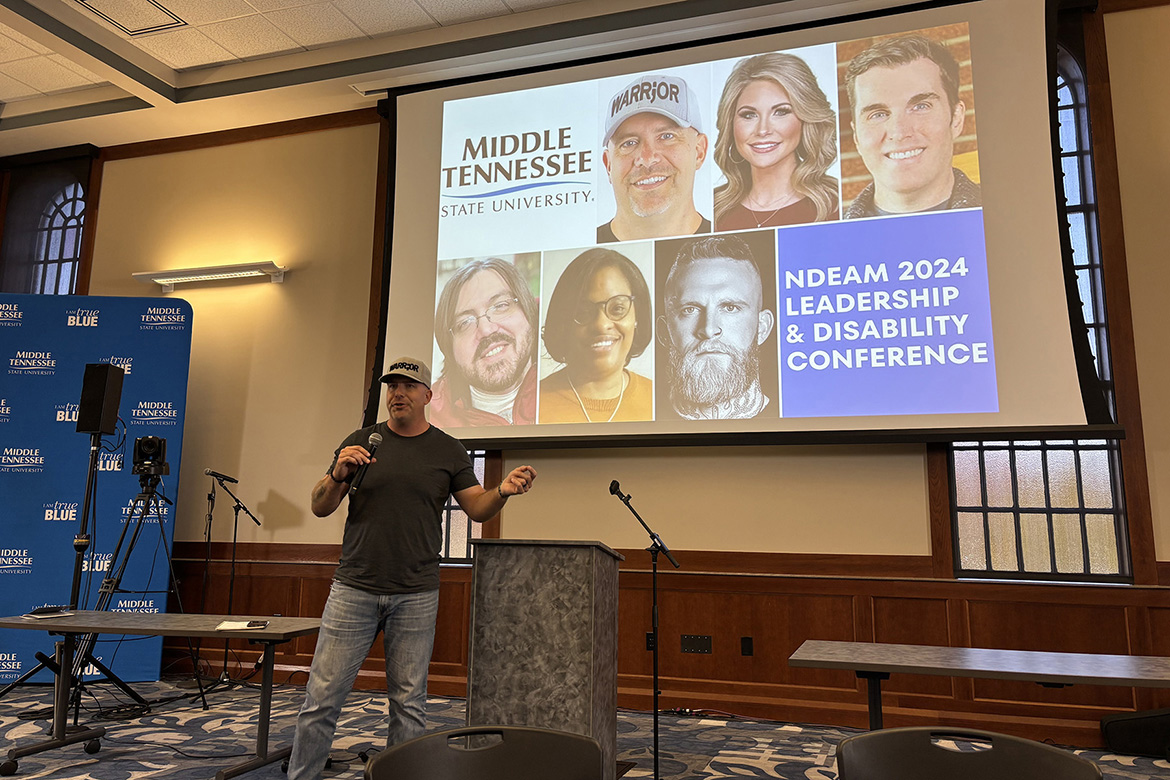
He began sharing his story on social media where he amassed millions of followers across various platforms, such as TikTok as @themrimpulsive, as well as on Instagram and YouTube.
“We as human beings seek connection, and if we find connections with those that understand and see us, and they hear us, it’s amazing how we’re not going through life alone anymore,” Zink said.
The University Honors College, Omicron Delta Kappa, the Office of the University Provost and Golden Key International Honor Society were the organizing sponsors of the conference along with support from numerous other campus organizations.
— Maddy Williams (Maddy.Williams@mtsu.edu)

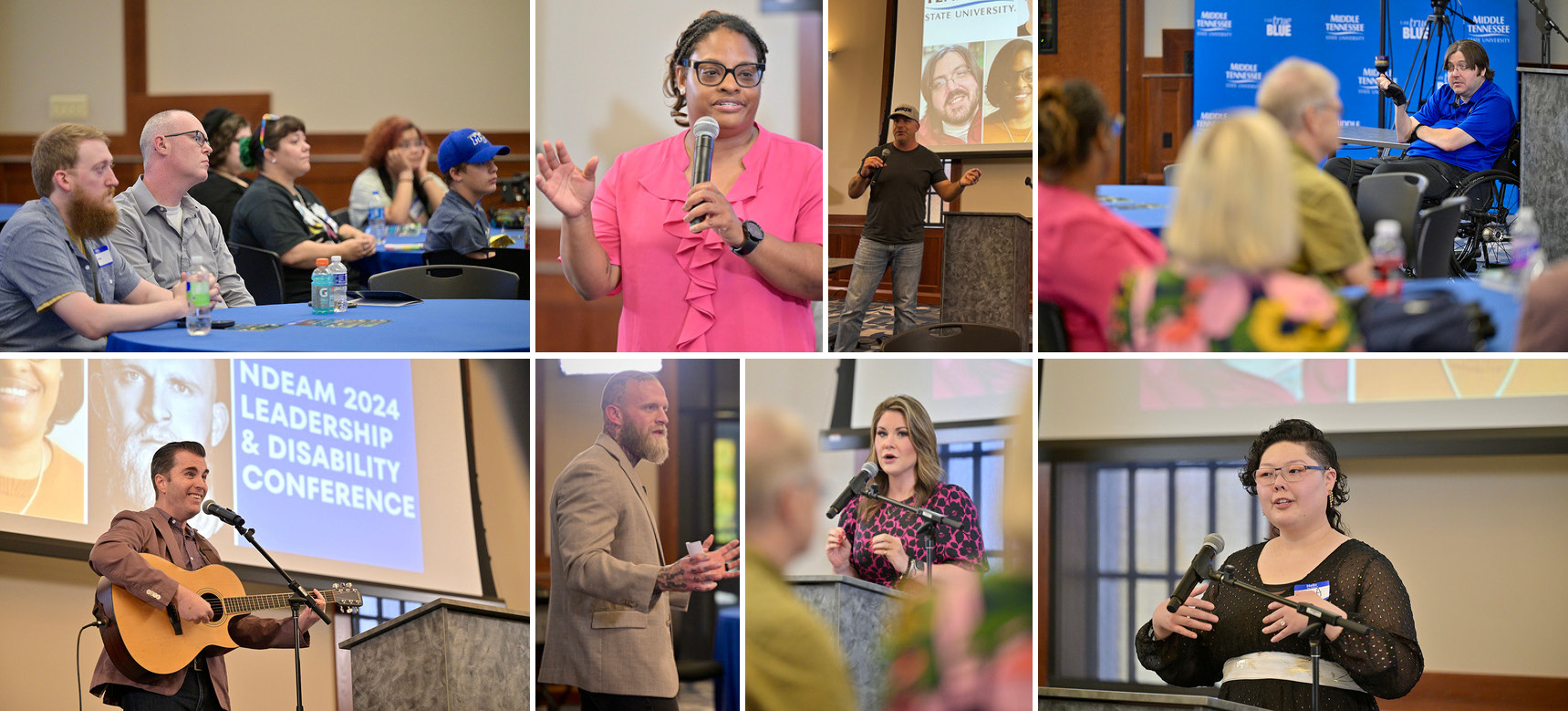
COMMENTS ARE OFF THIS POST